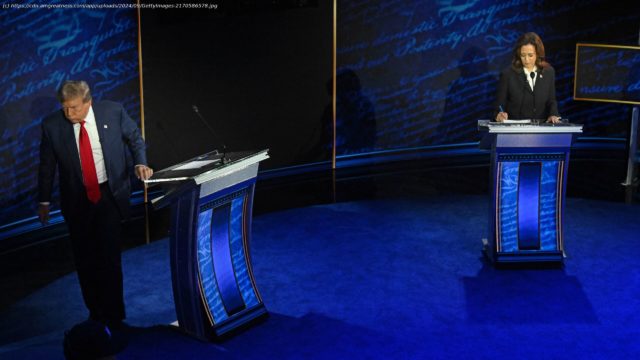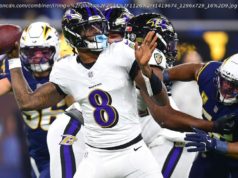After the September 10, 2024, presidential debate between Donald Trump and Kamala Harris, the Harris campaign became giddy. And why not?
After the September 10, 2024, presidential debate between Donald Trump and Kamala Harris, the Harris campaign became giddy.
And why not?
Pre-debate conventional wisdom had assured the country that underdog Harris would shock the nation with her endless wash/rinse/spin word salads of repeated phrases and memorized sound bites.
She supposedly would prove as shaky as Trump—the veteran of several presidential debates—would prove merciless in eviscerating her.
That did not happen. Post-debate polls of the first 24 hours showed clearly that the public felt Harris had won.
Why?
She stuck religiously to her pre-debate prep. It was not difficult to anticipate what her tripartite script would be. Joe Biden’s failed debate with Trump offered a model, along with the need to avoid Harris’s own known linguistic and cognitive liabilities:
One, Harris was told to bait the touchy Trump with smears and slights about his failed rallies, his racism, and his shaky businesses. That way she could trigger him to lose his cool, go off-topic, rant, and turn off viewers.
And he did just that and often. Trump clearly did not prepare detailed answers, was not ready to be insulted, and was not reminded to relax—and smile, joke, and in Reaganesque fashion sluff off her certain slurs.
Two, she was not supposed to try thinking on her feet, no matter what the question asked.
Instead, Harris was always ordered to plug in her prepped and canned anecdotes, banalities, and bio-stories regardless of the topic or question. And she followed that off-topic boilerplate to spec.
Three, the campaign apparently knew they could rely on the moderators for four givens:
a) they were to fact-check Trump but never Harris. And they did that at least five times;
b) they were to demand follow-up answers from Trump to make him specifically answer the question addressed. And they did that numerous times, but not on a single occasion to Harris;
c) they were to ask Trump provocative questions to force him to deny that he was a racist, an insurrectionist, and an election denialist. But they were never to do so with Harris, whose many past outlandish statements, prevarications, flip-flops, and padded bio would have given the moderators similar rich fodder for cross-examination;
d) they would interrupt Trump to get him off tempo, but never Harris.
The result was that a cool, if not smug, Harris mostly smiled while an irate Trump scowled and raged.
Thus, to the millions who watched the slugfest, Harris seemed more “presidential” and therefore “won” the debate.
When the size of the huge television audience—some 67 million watched the debate—was announced, team Harris naturally assumed her win might bounce her even higher than did her initial July surge after the forced abdication of President Biden from the ticket.
But then strange post-debate developments followed.
Either a Tiny or No Bounce?
Harris did not receive the anticipated large bounce.
In fact, the polls still remain mostly even. She may have arrested Trump’s pre-debate surge a bit, but otherwise, a debate that polled so heavily in her favor oddly still seems to have made little difference in the still up-for-grabs race.
Stranger still, Harris, the supposedly clear winner, almost immediately asked for another debate. Her handlers suggested that this demand displayed newfound confidence from her win—as if an assured, second knockout debate would ensure her permanent pull away.
But Trump and others countered that it might have instead indicated the very opposite: that her pre-debate internal polls had shown the race was even or even had Trump leading and thus she still needed a second shot at derailing him, given her own team was not sure her single and transitory debate favorability would translate into any real lead.
The Debate Reset
Then in a day or two, other and far more significant realities emerged, resetting the debate—like a first date’s favorable first impression beginning to sour a day later upon further reflection.
As the debate clips were endlessly replayed on television, radio, and the blogosphere over the ensuing week, few, if any, favorable Harris soundbites popped up.
Harris, remember, was a veritable political unknown who was running a stealth campaign of media avoidance and running out the clock.
She had never really answered any questions addressed to her in the campaign. And in the debate, she presented her nothingness in confident fashion. But she ignored and snubbed both the toadish moderators and Trump at every turn.
Yet the public had tuned in only to receive just three answers from her that she had never previously offered them since her July anointment:
1) Why are you flipping—temporarily or permanently?—on almost every issue from your past positions?
2) If you are the candidate of change, why did you and President Biden as incumbents not make these changes the last three years—or at least promise now to make them in the next four months of your remaining tenures?
3) And what exactly will be your policies as president and the details of their proposed implementation?
Every time these questions in the debate were either stumbled upon by the moderators or demanded by Trump, Harris evaded by plugging in her memorized, smiley, and stonewalling non-answers.






